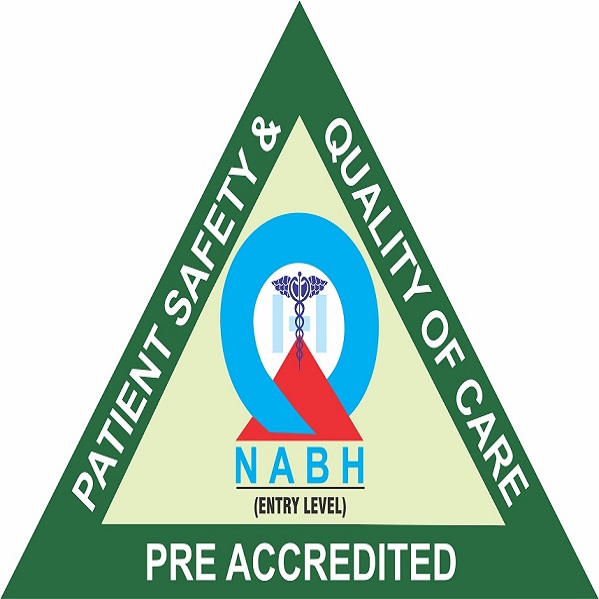We often brush off a stuffy nose, ignore mild ear discomfort, or dismiss a persistent sore throat as “normal.” But according to Dr. Rahul Agrawal, one of the most experienced ENT specialists at AHRI Gwalior, these seemingly minor symptoms can be the early signs of deeper, more serious issues.
 In this blog, Dr. Agrawal breaks down common ENT symptoms that should never be ignored—and what they could really mean for your health.
In this blog, Dr. Agrawal breaks down common ENT symptoms that should never be ignored—and what they could really mean for your health.
1. Muffled Hearing or Ear Fullness? It’s Not Just Wax
While earwax buildup is common, recurring ear blockage or a feeling of “fullness” could signal:
-
Middle ear infections
-
Eustachian tube dysfunction
-
Early hearing loss
“Delaying treatment can lead to permanent hearing damage,” says Dr. Rahul.
Pro Tip: Avoid inserting objects like earbuds or pins to clean your ears.
2. Constant Sneezing or Nasal Congestion? Check for Allergic Rhinitis
Frequent sneezing, runny nose, or nasal blockage—especially in the morning—may point to an underlying allergy, not a common cold.
“Allergies are manageable with the right diagnosis, but if untreated, they can trigger sinus infections,” warns Dr. Agrawal.
3. Hoarseness That Lasts Over 2 Weeks? Don’t Ignore It
If your voice sounds hoarse or strained for more than 10–14 days, it could be a sign of:
-
Vocal cord strain
-
Reflux-related irritation
-
Even early laryngeal conditions
“Persistent hoarseness needs evaluation, especially in people who use their voice professionally,” he adds.
4. Breathing Difficulty at Night? It Might Be More Than a Cold
Breathing trouble during sleep, snoring, or mouth-breathing in children could indicate:
-
Enlarged tonsils or adenoids
-
Deviated nasal septum
-
Sleep apnea
“Early intervention can prevent complications in both children and adults,” explains Dr. Rahul.
5. Frequent Throat Infections? Could Be a Tonsil Case
Chronic sore throats, white patches, or difficulty swallowing may not always be viral.
“Recurrent tonsillitis can affect your immunity and quality of life. Timely ENT consultation can help you decide if surgery is needed,” advises Dr. Rahul.
About Dr. Rahul Agrawal – AHRI’s Trusted ENT Expert
With years of clinical excellence and a reputation for detailed diagnosis and patient-friendly care, Dr. Rahul Agrawal is one of Gwalior’s most respected ENT specialists at AHRI (Agrawal Hospital & Research Institute). From pediatric ENT care to adult sinus, hearing, and voice disorders, Dr. Agrawal is known for his accurate treatment and compassionate approach.
Final Advice from Dr. Rahul:
“Small symptoms speak loud. Don’t wait for pain or discomfort to become permanent. Early diagnosis is the best treatment.”
If you or your loved ones are facing ENT issues—however minor they seem—book a consultation with Dr. Rahul Agrawal at AHRI today and take a proactive step toward better health.


 1. Watch Out for Sudden Temperature Changes
1. Watch Out for Sudden Temperature Changes Dr. Rahul Agrawal is known for combining clinical excellence with compassionate care. With deep expertise in diagnosing and treating a wide range of ENT disorders, he is regarded as one of the
Dr. Rahul Agrawal is known for combining clinical excellence with compassionate care. With deep expertise in diagnosing and treating a wide range of ENT disorders, he is regarded as one of the 


 Ear, nose, and throat (ENT) problems can be both uncomfortable and disruptive to daily life. Whether it’s a recurring sinus infection, persistent ear pain, or a throat condition affecting your voice, expert medical care is essential. In Gwalior, Dr. Rahul Agrawal, a leading ENT specialist at AHRI (Agrawal Hospital & Research Institute), offers advanced and compassionate treatment for all ENT-related conditions.
Ear, nose, and throat (ENT) problems can be both uncomfortable and disruptive to daily life. Whether it’s a recurring sinus infection, persistent ear pain, or a throat condition affecting your voice, expert medical care is essential. In Gwalior, Dr. Rahul Agrawal, a leading ENT specialist at AHRI (Agrawal Hospital & Research Institute), offers advanced and compassionate treatment for all ENT-related conditions. Climate change is no longer a distant threat; its impact is being felt worldwide, affecting not just the environment but also human health. According to
Climate change is no longer a distant threat; its impact is being felt worldwide, affecting not just the environment but also human health. According to 


